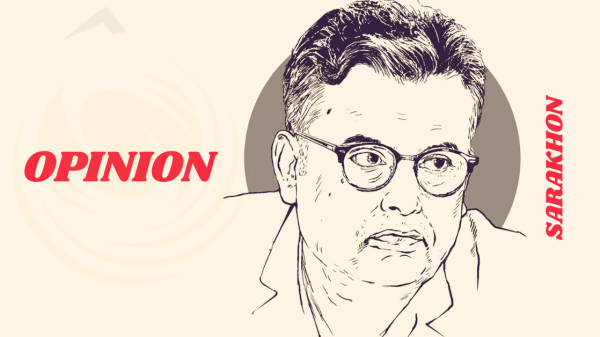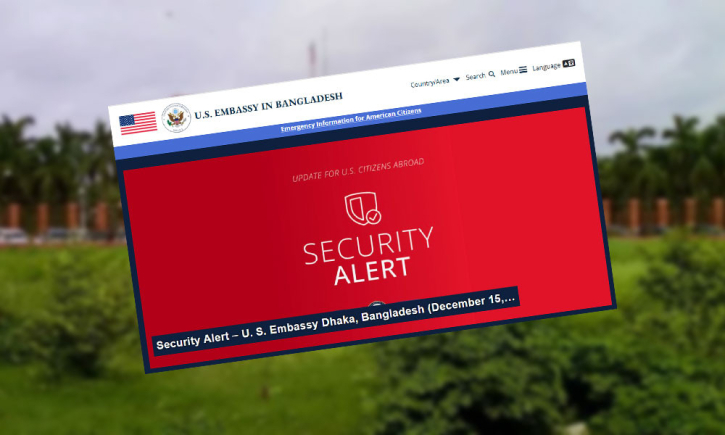Bangladesh in a Waiting Game: Leadership, Legitimacy, and the Elusive Election Date

In the past ten months, Muhammad Yunus has made eleven foreign trips; however, only his attendance at BIMSTEC could be considered an official visit. The meeting he had with the Indian Prime Minister during that event, however, was far from dignified. Even so, when compared to his encounters and photo opportunities with other heads of government, the meeting with Modi could still be considered acceptable.
A Contrast with Bangladesh’s Historical Diplomacy
When Britain recognized Bangladesh, and even before formal recognition, the British Prime Minister paid respect to Bangladesh’s leader, Bangabandhu Sheikh Mujibur Rahman. Later, at 10 Downing Street, Prime Minister Heath himself opened Bangabandhu’s car door as a sign of British courtesy. No one anticipated that Muhammad Yunus’s visit to Britain would become a matter of such embarrassment for Bangladesh. Moreover, British Ambassador Sarah Cook, even before her ambassadorial posting to Bangladesh, had close relations with the Yunus Centre during her time in the country. So, when Yunus arrived in Britain and Sarah Cook expressed her delight at welcoming him, it seemed, as a senior diplomat, she might arrange something for him. From what I’ve observed, she appears to be an energetic and capable individual.
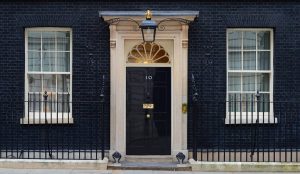
The Limits of Individual Influence in Britain
Britain, as an ancient democratic state—the cradle of democracy—operates on a system where individuals ultimately cannot play a significant role in shaping the country’s direction. The system is paramount. Yunus’s position during his visit to Britain made clear how the system views him, resulting in a loss of face for a struggling nation. Such incidents have occurred throughout history, and one must accept them. Yet, history often corrects itself in its own time.
The Meeting with Tarique Rahman and the Joint Statement
Ultimately, Yunus’s visit became defined by his meeting and joint statement with Tarique Rahman, the BNP’s second-in-command. The respected journalist Farid Hossain noted in a Facebook post, “It’s perhaps the shortest ever joint statement in our political history.” This is indeed the practice case, and the joint statement has sparked considerable discussion across the country.
There may be important issues behind the statement. Still, its language—and the body language of Yunus and Tarique Rahman—was as casual as the way Yunus began their conversation, commenting on the weather. Tarique Rahman agreed. London, a city steeped in the legacy of Shakespeare, Yeats, Eliot, and Seamus Heaney, provided the setting. If one wishes to read poetically into their opening, it could be seen as both men signaling that this was a remarkable moment for them. Taken at face value, however, the casual start suggests that neither sees a crisis in Bangladesh. Even Yunus’s failure to get a photo with the British Prime Minister is seemingly no issue.
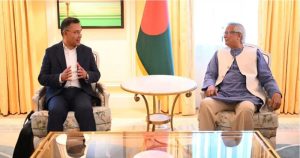
Public Reaction and Political Reflections
Following the Yunus–Tarique meeting, a flurry of debate has ensued on media and social forums. Analysts offer varied perspectives. As a modest journalist, I have often written that, after the fall of Sheikh Hasina’s government on the 5th, it was a major failure for the BNP, as it was unable to assume political leadership as the country’s second-largest party. The question also arises: Was it strategically wise for the BNP to so openly present the person they recognize as their leader? Only the future will tell.
HaJaBaRaLa’s “Pencil”
After the meeting, Tarique Rahman made no further remarks, appearing only in the joint statement. The statement said that, if everything proceeds correctly—with reforms and justice—an election could be held before Ramadan in February. At this, I am reminded of Sukumar Ray’s HaJaBaRaLa: “What is seven times two? I looked up and saw a crow writing something on a slate with a pencil, then looking at me. I said, ‘Seven times two is fourteen.’ The crow shook its head and said, ‘No, no, fail.’ … The crow stayed silent, pencil in its mouth, thinking. Then it said, ‘For ‘seven times two is fourteen’ take four, the pencil stays in hand.’”

In reality, only four of fourteen have been achieved—the pencil remains in hand. It is unclear whose hand holds the pencil now. But if the pencil stays with the crow, time’s value means seven times two just keeps increasing. In the crow’s country, time is valuable. So, as time passes, seven times two grows ever larger: twenty, twenty-one, twenty-two—and so on. The crows can change the calculation since they hold the pencil. Until the public holds the pencil, if the country remains caught in Sukumar Ray’s fantasy about the election date, there is no one to blame. After the Yunus–Tarique meeting, the government’s last statement said that an elected government would be in place by April. Let’s see where the election date lands as time moves on and reforms unfold. When will the people themselves get the pencil to write the date?
Meanwhile, questions have arisen: why, even as a Nobel laureate, can Muhammad Yunus not run the country? Why does the economy continue to worsen? Why does the country face so much international humiliation?
Yunus has described his rise to power as “part of a meticulous design.” In various interviews, he claimed he didn’t seek power and was brought in against his will. He says he doesn’t belong in this world. One of his supporters, a 24-year-old, claimed it was their good fortune that a Nobel laureate is leading the country. A 90-year-old said the same—that it was their destiny for a Nobel laureate to be in charge.
I must point out: Malala Yousafzai received the Nobel Peace Prize as a teenager for risking her life for girls’ education; Indian NGO worker Kailash Satyarthi also won the Nobel. Could Malala run Afghanistan? Could Kailash run India, even for an hour?
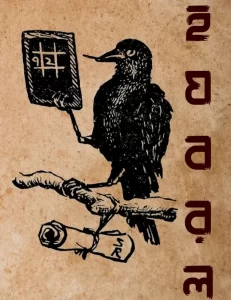
Bangladesh’s Leaders: Experience and Context
Bangladesh has seen many elected and unelected governments. The first head of government, Sheikh Mujibur Rahman, was an MP and minister before taking the helm, above all, as the leader of the largest party. Governments ran in his name, but Syed Nazrul Islam, as a CSP officer, had been in government since 1949 and repeatedly served as acting head of the Awami League. Tajuddin Ahmad, political secretary to Chief Minister Ataur Rahman Khan in 1955, was also general secretary of the Awami League. After Mujib, Ziaur Rahman’s government took over. Ziaur Rahman was the deputy chief of the military, a post created for him. Later, Justice Sattar was an appellate division judge and Pakistan’s election commissioner. General Ershad was the army chief. Before taking power, Khaleda Zia led a major party for nine years and served as First Lady for three years. Sheikh Hasina, before assuming office, was already a prominent party leader and had served twice as Leader of the Opposition in parliament. In each caretaker government, a former Chief Justice—head of a branch of state—was appointed as chief. Fakhruddin Ahmed, head of an interim government, led the Bangladesh Bank before taking office.
Compared to these, Yunus is only the head of a small bank. He served three months as an adviser in a caretaker government, but that government was under full presidential rule. His NGO concept is not new; lending without collateral is a practice that has been around for thousands of years. Writing more on that would take this essay in another direction. Yunus himself has said that running a state is unfamiliar territory, and the last ten months have proven it.
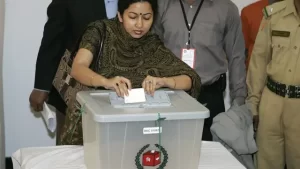
The Unfinished Plate and Political Calculations
Moreover, the burden he has taken on is immense. When that battle is over, when will Bangladesh’s elections be held? That too can only be calculated with the crow’s pencil from Sukumar Ray’s story.
Before that calculation, the country needs stability. In today’s complex world, Bangladesh must be able to engage globally with a stable government and leader. For instance, regarding Iran, the U.S. President recently met with Pakistan’s army chief instead of its head of government, as America maintains dual authority in Pakistan for its interests. After Yunus’s trip to Britain, it is clearer what Bangladesh must do. Whoever can quickly bring the country out of Sukumar Ray’s fantasy into stability and honor—the force that has been most significant since the 5th—politicians should act in the country’s interest. In Bangladesh, both Ziaur Rahman and General Ershad stabilized the nation before holding elections. Without stability, there can be no election. On Yunus’s plate is the issue of the justice deficit regarding the police. Can a country be stable without a police force? The party that comes to power will not be an interim government—it will be permanent, with control over all state organs, including the police. Will they allow the crows to keep calculating with the pencil?
Author: Winner of the highest state journalism award, Editor of Sarakhon & The Present World.



